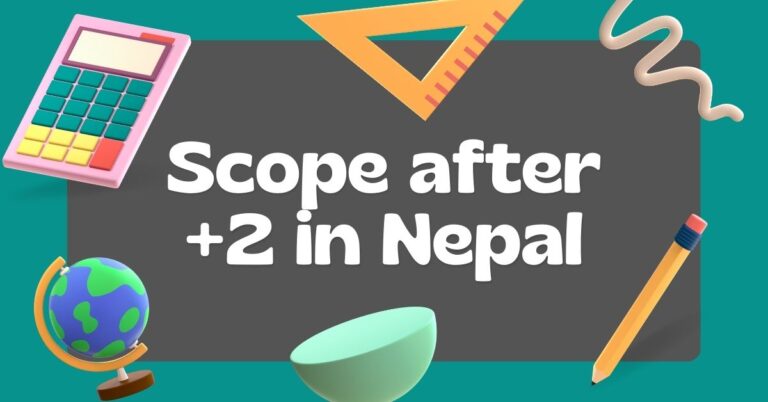Bachelor of Business Studies (BBS) – Complete 2025 Guide
Introduction to BBS


If you’re thinking about stepping into the world of business and management , one of the most recognized and respected undergraduate degrees you’ll come across is the Bachelor of Business Studies (BBS). Offered primarily by Tribhuvan University and its affiliated colleges, this program is widely accepted and known for building solid foundations in areas like accounting, finance, marketing, and general management. But it’s more than just a degree—it’s a launchpad for thousands of students looking to make a mark in Nepal’s evolving corporate landscape.
The BBS program is structured as a four-year academic degree aimed at developing business competence and management skills among students. Its popularity stems from its practical approach and wide acceptance in both public and private job sectors. Since its introduction, BBS has been consistently producing graduates who go on to pursue further education such as MBA, MBS, CA, or even establish successful businesses of their own.
In terms of recognition, BBS from Tribhuvan University holds strong academic credibility in Nepal and is also accepted internationally. Students with this degree are eligible to apply for master’s programs in universities abroad, provided they meet other academic requirements. It also serves as a stepping stone for various public service commission examinations (Lok Sewa Aayog), bank jobs, teaching licenses, and more.
What sets BBS apart from many other bachelor’s programs is its dual nature—it’s both theoretical and practical. Unlike more specialized business degrees like BBA or BHM, BBS maintains a broader scope, giving students the flexibility to choose career paths in different domains of business.
Why Choose BBS?
You might be wondering—what makes the BBS program so appealing to students across Nepal? The answer lies in its affordability, accessibility, and wide-ranging career prospects. Unlike other business degrees like BBA or BBM, which are often more expensive and limited to certain cities or private institutions, BBS is available in nearly every district of Nepal through TU-affiliated colleges. This makes it accessible to students from both urban and rural backgrounds.
Let’s talk money first. The BBS program is one of the most budget-friendly bachelor’s degrees in Nepal. The average total cost for the four-year program at a government college ranges from NPR 40,000 to NPR 80,000, depending on the institution. This is drastically lower than BBA programs, which may cost upwards of NPR 300,000 or more. For students from middle or lower-income families, this cost-effective education is a game-changer.
Moreover, BBS provides a flexible schedule, with many colleges offering morning or evening classes. This opens up opportunities for students to work part-time or engage in internships while studying. Over time, this real-world experience proves invaluable.
Another major reason to choose BBS is the wide career scope it offers. Graduates can enter the banking sector, join NGOs/INGOs, pursue teaching, or even prepare for government-level positions. Others go on to run their own startups or family businesses. And for those looking to study abroad, BBS is recognized in countries like Australia, USA, Canada, and the UK, making it easier to transition into master’s level education.
In essence, BBS is not just a degree—it’s a practical toolset that equips students with knowledge, skills, and flexibility to thrive in multiple career paths.
Eligibility Criteria for BBS
So, who can apply for the BBS program ? The good news is that the eligibility criteria are straightforward and inclusive, opening the doors for a diverse group of students to pursue business education.
Academic Requirements:
To be eligible for BBS, applicants must have successfully completed their +2 level (10+2), Higher Secondary Education Board (HSEB), or an equivalent degree in any stream—Science, Management, Humanities, or Education. However, students from the Management stream often find it easier to grasp the subjects as many of the core concepts are familiar.
Applicants must secure at least a second division (minimum 45%) in their +2 exams. Those who studied under the GPA system should have a minimum GPA of 1.8 and a Grade D+ or above in all subjects.
Entrance Exams and Admission Process:
Tribhuvan University does not conduct a centralized entrance exam for BBS. Instead, individual colleges may conduct their own admission tests or interviews, particularly in cities where there’s high demand. The admission process typically begins in August or September each year, and students are advised to keep an eye on official notices from TU and affiliated colleges.
Required documents for application usually include:
- Marksheet and character certificate of SEE and +2 levels
- Provisional and original transcripts
- Passport-size photographs
- Copy of citizenship certificate
Some colleges also require a recommendation letter, especially for scholarship consideration.
BBS doesn’t impose any age restriction, so even students who have taken educational breaks can apply. It’s a flexible program that embraces all aspiring business professionals.
Top Universities and Colleges Offering BBS
The Bachelor of Business Studies is primarily offered under the Faculty of Management, Tribhuvan University, but there are thousands of colleges across Nepal that provide the course through TU affiliation. This massive network of colleges ensures that the BBS program is accessible in every province, from cities like Kathmandu and Pokhara to smaller towns like Birgunj, Nepalgunj, and Dhangadhi.
Top TU-Affiliated Colleges Offering BBS:
- Shanker Dev Campus, Kathmandu – The gold standard for BBS . Highly competitive.
- Nepal Commerce Campus (NCC), Minbhawan – Known for commerce education excellence.
- Patan Multiple Campus, Lalitpur – High reputation and well-rounded faculty.
- Public Youth Campus, Dhobichaur – Popular among management students in the valley.
- Thames International College, Kathmandu – Offers both TU-affiliated and international degrees.
Other Notable Private/Community Colleges:
- Global College of Management, Mid Baneshwor
- Prime College, Khusibu
- Kantipur College of Management and IT, Sitapaila
- Kathford International College, Balkumari
- Campion College, Sanepa
These colleges are known not only for academic excellence but also for strong infrastructure, internship programs, career counseling, and extracurricular opportunities.
When selecting a college, consider factors like faculty expertise, past academic results, location, affordability, and alumni success stories.
Course Structure and Curriculum of BBS
The BBS curriculum is carefully designed to provide a balanced mix of theoretical knowledge and practical application. It spans four years, and each academic year has two semesters, although TU still follows an annual exam system rather than a semester-based evaluation.
Here’s how the four-year structure typically looks:
First Year (Fundamental Concepts):
- Business English
- Business Economics-I
- Principles of Management
- Business Mathematics-I
- Financial Accounting & Analysis
This year builds foundational understanding across key business disciplines and develops academic skills like writing, communication, and mathematics.
Second Year (Intermediate Level):
- Business Communication
- Macroeconomics
- Organizational Behavior
- Cost and Management Accounting
- Fundamentals of Marketing
The second year introduces students to internal functions of organizations and dives deeper into business analysis, accounting, and HR concepts.
Third Year (Advanced Understanding):
- Business Environment and Strategy
- Fundamentals of Financial Management
- Business Law
- Taxation in Nepal
- Research Methodology
This year is about applying what you’ve learned to real-world scenarios and beginning to think critically and strategically.
Fourth Year (Specialization and Project):
- Entrepreneurship and Enterprise Development
- Concentration Subjects (Marketing, Finance, or Accounting)
- Final Project Report or Thesis (compulsory)
The fourth year allows students to choose a specialization based on their interest and career goals. This year also includes an internship or field project that gives students hands-on experience.
The curriculum undergoes periodic updates by TU to match global and national business trends, making sure students stay industry-ready.
Specializations in BBS: Choosing Your Focus
One of the most rewarding aspects of the Bachelor of Business Studies (BBS) program is the ability to specialize in a particular area during the fourth and final year. This specialization equips students with in-depth knowledge and skills in a specific business domain, enhancing employability and aligning academic training with career ambitions.
Available Specializations in BBS under TU:
- Accounting
- Finance
- Marketing
- Management
- Human Resource Management
Each concentration has a tailored set of courses that students must complete along with their regular curriculum. Here’s a quick overview of what each specialization covers:
Accounting:
Ideal for those planning to become accountants, auditors, or financial controllers. Core topics include Advanced Accounting, Auditing, and Taxation. This track is especially useful for students preparing for CA or ACCA qualifications.
Finance:
If you’re aiming to work in banks, insurance companies, or the stock market, finance is your go-to. Topics like Investment Management, Financial Institutions, Risk Analysis, and International Finance are covered.
Marketing:
This specialization prepares students for careers in sales, advertising, digital marketing, and market research. It includes Consumer Behavior, Brand Management, Marketing Research, and E-commerce.
Management:
Best suited for those targeting general management roles or entrepreneurship. It includes Operations Management, Strategic Management, and Organizational Development.
HR Management:
For students interested in working with people and building corporate culture, HR offers a clear path. Topics include Recruitment, Training & Development, Labor Laws, and Performance Management.
The choice of specialization should align with your long-term goals. If you’re planning to go for an MBA, these specializations can give you a head start. Moreover, in Nepal’s competitive job market, having expertise in a specific domain helps set you apart.
Not all colleges offer every specialization, so it’s crucial to check in advance whether your chosen college provides your desired concentration.
Scope and Career Opportunities After BBS
Now comes the million-rupee question: What can I do after BBS? The short answer is—plenty. BBS graduates in Nepal are in high demand across various sectors, including banking, insurance, government services, education, and the private corporate world.
Popular Career Paths for BBS Graduates:
- Banking and Finance Sector
This is the most popular route. Graduates often take up roles such as junior assistant, teller, or officer in commercial and development banks. Institutions like RBB, Nabil Bank, NIC Asia, and others hire BBS graduates regularly. - Government Jobs
Public Service Commission (Lok Sewa Aayog) exams offer stable and prestigious jobs. BBS is one of the preferred qualifications for officer-level jobs in administration, finance, and commerce departments. - Teaching and Academic Roles
Graduates can also become lecturers or secondary-level teachers by clearing teaching license exams. This is ideal for those wanting to stay in the academic field or prepare for MBS or MBA. - Business and Entrepreneurship
BBS gives students the know-how to start and manage their own businesses. Many graduates go on to run successful ventures in retail, trade, tech, and consulting. - NGOs and INGOs
International and national organizations look for graduates with management expertise. You could work in project management, finance, HR, or communication roles. - Higher Education (MBA/MBS/CA/ACCA)
For those looking to enhance their career prospects, an MBA or MBS is the next logical step. BBS is a strong base for pursuing these degrees in Nepal or abroad.
Salary Expectations:
- Entry-level: NPR 15,000 – NPR 25,000/month
- Mid-level (after 2-5 years): NPR 30,000 – NPR 60,000/month
- Senior roles (managerial): NPR 70,000+/month
With experience and specialization, your earning potential can grow significantly. The versatility of the BBS degree allows graduates to pivot between sectors, depending on their interests and goals.
Differences Between BBS and BBA
Students often face a dilemma: Should I choose BBS or BBA? While both are business degrees, they differ in terms of structure, cost, pedagogy, and recognition. Understanding the difference can help you make the right choice.
| Feature | BBS (Bachelor of Business Studies) | BBA (Bachelor of Business Administration) |
|---|---|---|
| Duration | 4 Years | 4 Years |
| Curriculum | Annual system (theoretical) | Semester system (practical + theoretical) |
| Affiliation | Mostly TU | TU, PU, KU, foreign universities |
| Admission | Direct or entrance at college level | Centralized entrance exam (CMAT, KUUMAT) |
| Cost | Low (NPR 40,000 – NPR 100,000) | High (NPR 300,000 – NPR 800,000) |
| Specializations | Limited | Wider options |
| Pedagogy | Traditional classroom learning | Case studies, presentations, projects |
| Recognition | National (strong for local jobs) | National & international (more global scope) |
So which one is better? It depends on your budget, location, and career goals. If you’re looking for an affordable and accessible degree with broad applications, BBS is a smart choice. But if you want international exposure, advanced teaching methodology, and can afford the cost, BBA may offer more value.
BBS Fees Structure
One of the most attractive features of the BBS program is its affordability, especially when compared to other undergraduate business degrees. While fees can vary based on location, reputation of the college, and whether it’s government or private, BBS remains one of the cheapest yet effective academic options in Nepal.
Average Fee Breakdown by College Type:
- Public (Government) Colleges
- Yearly Fee: NPR 8,000 – NPR 12,000
- Total for 4 Years: NPR 32,000 – NPR 48,000
- Community Colleges (Semi-Government)
- Yearly Fee: NPR 10,000 – NPR 15,000
- Total for 4 Years: NPR 40,000 – NPR 60,000
- Private Colleges (TU Affiliated)
- Yearly Fee: NPR 25,000 – NPR 40,000
- Total for 4 Years: NPR 100,000 – NPR 160,000
- Additional Costs:
- Uniforms, Books & Stationery: NPR 5,000/year
- Project Work/Internship Fee (Final Year): NPR 5,000 – NPR 10,000
- Exam Fee: NPR 1,000 – NPR 1,500 per subject
In essence, students can complete their entire BBS degree in a reputed government college for under NPR 50,000. This low investment offers a high return, especially for those aiming for government jobs or advanced degrees.
Scholarships and Financial Aid for BBS Students
For students worried about finances, BBS offers several scholarship opportunities—especially if you’re enrolling in TU-affiliated government or community colleges. Even private colleges have their own merit-based and need-based aid systems to attract talented students.
Types of Scholarships:
- Merit-Based Scholarships
- Offered to students with top +2 marks or entrance test scores.
- Some colleges waive up to 100% tuition fees for top-ranked students.
- Need-Based Scholarships
- Available for students from disadvantaged backgrounds or rural areas.
- Students may need to provide income documents or recommendations.
- Ethnic/Reserved Category Scholarships
- Reserved quotas for Dalit, Janajati, Madhesi, and differently-abled students.
- Governed by TU policies and local educational authorities.
- Internal Scholarships
- Many colleges conduct internal exams and reward top performers.
- Scholarships can range from 25% to 75% fee waivers.
- Government and NGO-funded Aid
- Various educational trusts and NGOs provide funding to support marginalized groups.
- Organizations like UGC Nepal, MoEST, and CEHRD also provide occasional aid.
If you’re aiming for financial aid, apply early and be prepared with necessary documentation. Reach out to your college’s administration for information on deadlines and eligibility criteria.
Internships and Practical Exposure During BBS
Although the BBS program is primarily theoretical, Tribhuvan University and its affiliated colleges have introduced practical components in the final year to bridge the gap between academic knowledge and real-world application. One of the key requirements in the fourth year is the Project Work or Internship, which adds immense value to the student’s learning journey.
What Does the Internship Involve?
During the fourth year, BBS students are required to complete a fieldwork assignment or an internship that typically lasts 6–8 weeks. This project is often conducted in collaboration with local businesses, banks, NGOs, or even government agencies. The objective is to give students hands-on exposure to real-life organizational operations, enabling them to apply their classroom learnings in a practical setting.
Students must prepare a comprehensive project report under the supervision of a faculty member, which includes:
- Problem statement or objective
- Data collection and analysis
- Organizational overview
- Observations and findings
- Conclusions and recommendations
The final report is submitted to the university and evaluated as part of the fourth-year examination.
Why is this Practical Exposure Important?
- Career Boost: Many students secure permanent job roles where they interned.
- Networking: It introduces students to industry professionals, future employers, and mentors.
- Skill Development: Helps improve communication, teamwork, research, and analytical skills.
Although not every college has a structured internship placement program, top colleges like Shanker Dev, NCC, and Prime College actively support their students in finding internships.
To maximize your experience:
- Apply early to companies
- Be proactive during the internship
- Choose a topic that aligns with your future career goals
With the growing demand for job-ready graduates, this practical component is a significant enhancement to the BBS curriculum.
Challenges of Studying BBS
While the BBS program has many strengths, it’s also important to acknowledge the challenges and limitations students may face during the course. Being aware of these can help students better prepare and make informed decisions.
1. Traditional Curriculum Structure
The BBS program under TU still follows an annual exam system, which means evaluations are only done once a year. This can create immense pressure on students and lacks the continuous assessment benefits offered by semester-based systems like in BBA or BBM.
2. Delays in Exams and Results
One of the most common issues BBS students face is academic calendar mismanagement. TU is notorious for delays in exam schedules and result publications. This can impact students’ plans for further studies or job applications.
3. Limited Practical Exposure
While the fourth year includes a project or internship, the first three years are mostly textbook-focused. This lack of hands-on training can make it harder for students to gain real-world skills early on.
4. Quality Differences Across Colleges
There are over 1,000 colleges in Nepal offering the BBS program, and the quality of education varies widely. Government colleges often have limited resources, overcrowded classrooms, and lack of modern facilities, while private colleges may charge more but offer better infrastructure and teaching methods.
5. English Proficiency Challenges
The BBS program is delivered in English, but many students—especially from rural or public schooling backgrounds—struggle with fluency. This can hinder their performance and confidence during presentations or interviews.
Tips to Overcome These Challenges:
- Start your preparation early and don’t rely only on classroom lectures.
- Engage in self-study, group discussions, and online learning platforms.
- Practice English writing and speaking skills regularly.
- Choose a college with strong faculty and support systems.
- Look for additional courses or certifications in Excel, Accounting Software, or Digital Marketing.
Being aware of these limitations doesn’t mean avoiding the course—but rather entering it with a game plan for success.
BBS Vs Other Business Degrees
Let’s break down how the BBS stacks up against other popular business degrees available in Nepal, especially for students who are comparing multiple options.
| Degree | Offered By | System | Duration | Cost | Focus |
|---|---|---|---|---|---|
| BBS | Tribhuvan University | Annual | 4 Years | Low | Broad Business Concepts |
| BBA | TU, PU, KU, Private | Semester | 4 Years | Medium–High | Practical, Case-Based |
| BBM | TU | Semester | 4 Years | Medium | Management & Leadership |
| BHM | PU, KU, Others | Semester | 4 Years | High | Hospitality Industry |
| BIM | TU | Semester | 4 Years | Medium–High | IT + Management |
Key Differences:
- Cost: BBS is the most cost-effective option, making it accessible to a wide range of students.
- Curriculum Structure: Most others follow a semester-based evaluation with internal assessments, while BBS still sticks to the traditional annual system.
- Focus Area: While BBA and BBM are more specialization-focused and practical in nature, BBS is more general and theory-based.
- Recognition: BBA and BIM tend to have more international appeal due to curriculum design and English-medium instruction.
Which should you choose?
If you’re looking for affordability, flexibility, and broad business education without breaking the bank—BBS is ideal. But if you’re targeting a corporate job or planning to study abroad soon after graduation, degrees like BBA or BIM may offer a head start.
How to Prepare for BBS Exams and Score Well
Scoring well in BBS exams isn’t rocket science, but it does require consistency, smart study habits, and time management. Since the program uses an annual system, preparation should start early to avoid last-minute stress.
Top Study Tips:
- Start Early:
Begin your revision at least three months before the exam. Divide your time based on subjects and weightage. - Understand the Syllabus:
TU publishes detailed syllabus outlines for each subject. Download and review them so you know what to focus on. - Use Reference Books:
Don’t just rely on class notes. Use standard textbooks recommended by TU. Also, check out past question collections. - Group Study:
Form study groups with your classmates to discuss difficult concepts. Teaching others helps you learn faster. - Past Questions Practice:
Solving the last 5 years’ exam papers helps understand the pattern and boost your confidence. - Presentation Matters:
Write clearly, use headings and bullet points in your answers. Neat and structured answers score better. - Stay Consistent:
Instead of cramming, make a study timetable and stick to it. Even 2–3 hours of daily study can yield excellent results. - Ask for Help:
Don’t hesitate to approach your teachers or seniors for guidance if you’re stuck on a topic.
With proper planning and effort, scoring first division or distinction in BBS is absolutely achievable—even if you’re from a non-management background.
Final Year Project and Report Writing in BBS
One of the most significant parts of the BBS program is the Final Year Project Report—a compulsory component for all fourth-year students. This project is your chance to showcase what you’ve learned, and it carries a substantial weight in your final evaluation.
Steps to Create a High-Quality Project:
- Select a Relevant Topic:
Choose a topic related to your concentration area (Marketing, Finance, etc.). It could be a case study, research project, or field survey. - Conduct Research:
Use primary and secondary data. Visit organizations, conduct interviews, or distribute surveys. - Structure Your Report:
- Title Page
- Acknowledgment
- Abstract
- Table of Contents
- Introduction
- Objectives
- Methodology
- Data Analysis
- Findings
- Conclusion and Recommendations
- Bibliography
- Appendix
- Seek Faculty Guidance:
A supervisor is assigned to help you. Take their suggestions seriously—they can be the key to a distinction-grade report. - Edit and Format Carefully:
Use proper formatting, fonts, and citations. Submit both hard and soft copies as required. - Defend Your Report (Viva):
Some colleges organize a viva (oral presentation) where you explain and justify your project findings.
This project not only improves your research skills but also boosts your resume. Some students even publish their research in academic journals or present at management seminars.
Conclusion
The Bachelor of Business Studies (BBS) in Nepal stands as one of the most accessible, affordable, and flexible academic programs available for aspiring business professionals. With a strong foundation in management, finance, accounting, and marketing, this four-year degree under Tribhuvan University has shaped the futures of thousands of students across the country.
Unlike more expensive and specialized programs like BBA or BBM, BBS opens doors for students from all socioeconomic backgrounds without compromising on academic quality. Its widespread availability in both government and private colleges ensures that students from cities to rural areas can pursue quality business education. Add to that the increasing global recognition of TU’s curriculum, and BBS becomes a stepping stone not just for national careers, but also for international opportunities.
Sure, there are challenges—an outdated exam system, varying quality across colleges, and limited practical exposure in the early years. But with the right college, proactive learning, and internships in the final year, students can emerge as confident and competitive graduates ready for the job market or further studies.
Whether you want to climb the corporate ladder, crack competitive exams, start your own business, or study abroad, a BBS degree gives you the tools to get started. It’s not just a degree—it’s a strategy, a stepping stone, and for many, the beginning of something great.
Frequently Asked Questions (FAQs)
1. Is BBS better than BBA ?
It depends on your goals. BBS is more affordable and widely available, while BBA is more modern, practical, and globally oriented. BBS is great for public service jobs and further studies , while BBA suits students aiming for corporate careers or international education.
2. Can I apply for MBA after completing BBS?
Absolutely. BBS is one of the most common undergraduate qualifications among MBA aspirants . Most universities, including TU, KU, PU, and international institutions, accept BBS graduates for MBA or MBS programs.
3. How long does it take to complete BBS ?
Officially, the BBS program is a 4-year course. However, due to occasional delays in exams and results under TU, some students may take 4.5 to 5 years to complete it.
4. What is the career scope of BBS ?
BBS graduates can work in banking, finance, teaching, NGOs, government service, marketing, and management sectors. Many also become entrepreneurs or pursue advanced degrees like MBA, CA, or ACCA.
5. Which is the best college for BBS ?
Shanker Dev Campus is the most prestigious TU-affiliated college for BBS. Other notable institutions include Nepal Commerce Campus (NCC), Public Youth Campus, Prime College, and Patan Multiple Campus.







